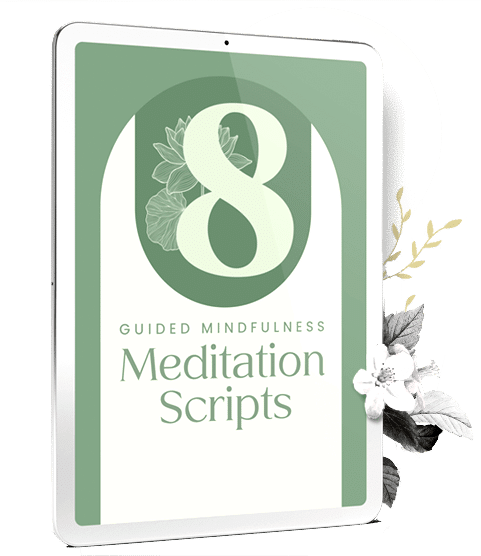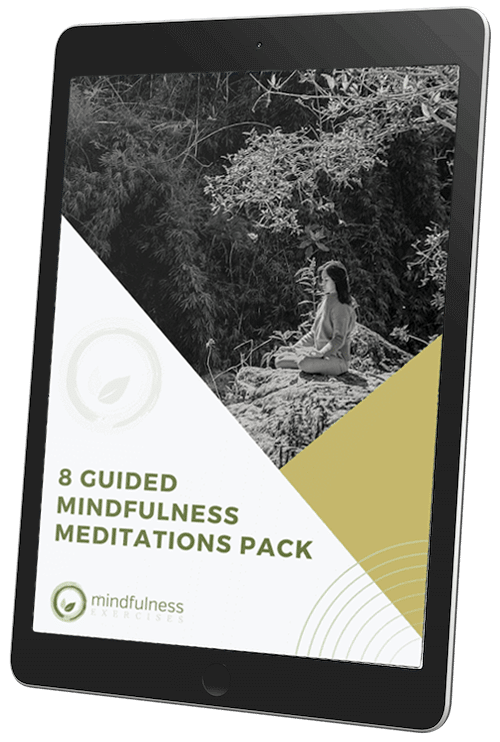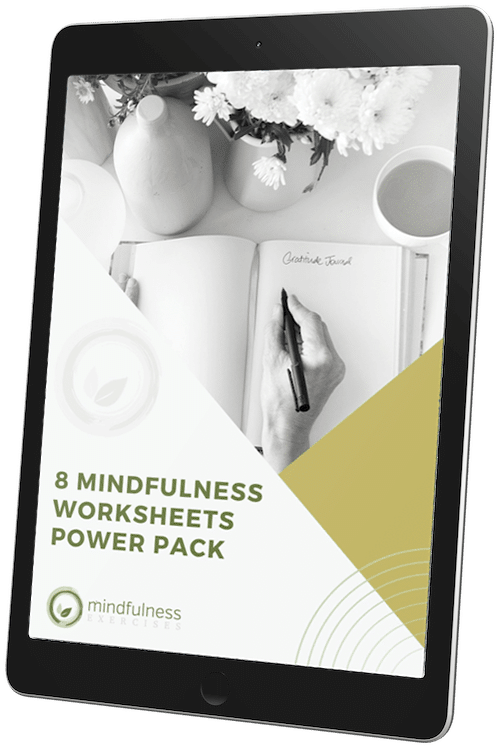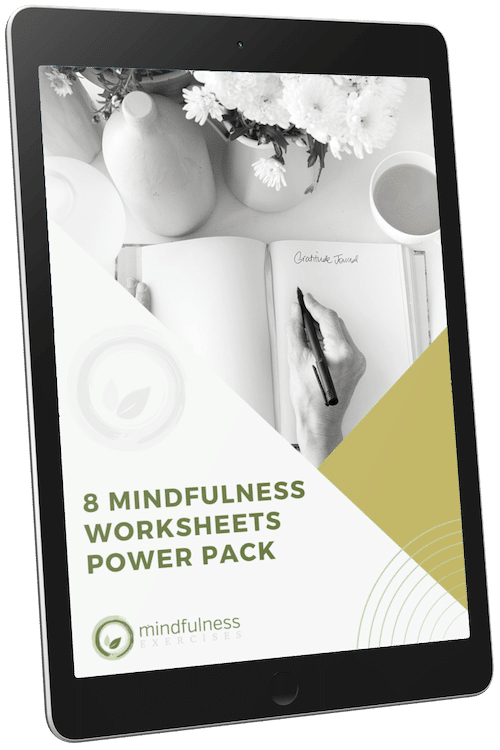Everyone feels anxious and stressed sometimes. But when anxiety becomes part of your daily experience, it starts to chip away at your well-being and peace of mind.
More and more people are turning to a side-effect-free tool: guided meditation for anxiety.
Meditation has a powerful healing effect on the physical, mental and emotional discomfort of anxiety.
In guided meditations, an experienced teacher accompanies you step by step through a practice. You don’t have to worry about what to do. All you have to do is listen and follow their guidance as best you can with an open mind and heart.

Best Guided Meditations for Anxiety
How to Practice Guided Meditation for Anxiety
So, how do you use guided meditations for anxiety? Here are a few tips to help you get the most out of whichever practices you are using.
Choose your meditations
There are many places you can find guided meditations for anxiety and stress, including those we have recommended in this post. Choose one or two that you’re drawn to and stick with them for a week or two–even if your anxiety nudges you to jump from one practice to another.
If you’re new to a guided meditation for anxiety and stress, we recommend you keep it short. A 10-minute practice is long enough to begin with.
Be comfortable
Find or create an inviting space to meditate. It can be as simple as a small table with a candle. Wear clothing that’s comfortable and lets you breathe easily.
Eliminate distractions
Turn off any reminders or alarms that might interrupt your practice. Protect the time you’re putting aside to build your anxiety-busting skills.
Prepare for the practice
Cue up your chosen guided meditation. Take a few minutes to settle your body into a comfortable posture. Sitting is best, so you stay alert. Lying down is fine, but you may need to be a little watchful for sleepiness.
Do the practice
Once you have made all these preparations, listen to your chosen practice. Do your best to follow the guidelines exactly. Your guide will suggest what to pay attention to and how. And remember to always be curious and kind to yourself no matter what is happening.
Don’t leave anything out
New and experienced meditators alike can make a common mistake: they think some things are in the way of meditation, instead of part of it. Feeling restless? Don’t leave it out of your meditation. Be with it. Feeling sad? Bring that into the field of your kind awareness.
End mindfully
What did you notice during the practice? Was there anything surprising or difficult? Is there a particular part of the practice you’d like to work on next time? Before you get up and move into your day, take a few minutes to sit with your meditation experience. You can also make a few notes in your journal about what you found most important.
What Is Guided Meditation for Anxiety?
Guided meditations for anxiety are specifically tailored to help reduce both the causes and effects of anxiety. Most guided practices for anxiety fall into these categories:
In all of these practices, your meditation guide takes you step by step through exactly what to do. Guided meditations for anxiety narrated by experienced teachers are especially effective because they:
Who are Guided Meditations for Anxiety for?
Anyone can benefit from meditation exercises to reduce anxiety, including children. You don’t need to have any special beliefs or experiences. In fact, if you have no meditation experience at all you’re in the perfect place to practice with a “beginner’s mind.” You come to the meditation fresh, with no expectations.
Guided meditations for anxiety are for everyone, including:
Benefits of Guided Meditation for Anxiety
How do guided meditations help with anxiety and stress? Let us count the ways.
Conclusion
Guided meditations for anxiety are a proven tool to help reduce anxiety and build your self-confidence and resilience. Most importantly, they show you how to practice self-compassion around painful moods and experiences. This is a practice that can become a healing lifelong skill for daily living.







